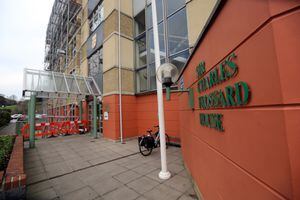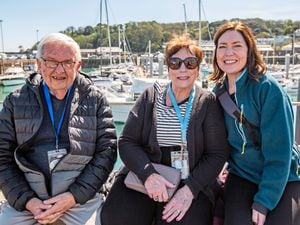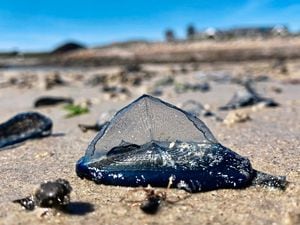Conflict over top job appointments
RECRUITMENT processes for more senior States posts, including the head of law enforcement, have been marred with disagreements.

After Guernsey Press exclusive revelations about the level of political involvement and conduct in the recruitment of the new head of curriculum and standards, we can now confirm a complaint was made – but then dismissed – about how the new head of law enforcement was appointed.
Clashes between the civil service and Education’s board have also afflicted the director of education recruitment process, something that was the subject of official questions last year, while it has also been confirmed that the original overseas pick for the executive principal role was not employed after last-minute problems emerged in pre-employment checks.
On 23 October, Ruari Hardy was announced as the new head of law enforcement.
Following a series of questions from this newspaper, a joint statement from Home Affairs and Policy & Resources has shed some light on how that happened.
They confirmed that a law enforcement development programme was devised in March 2017 for the head of law enforcement inviting those within senior management teams to make it known if they were interested in participating. Four responded.
‘Each programme was bespoke and it was left to the initiative of each candidate to use the programme to their advantage. Completion of the programme was not contractual, neither was it a prerequisite within the HoLE job description,’ they said.
They would not say if the successful applicant completed the programme.
The committees also did not respond directly to a question about whether any member of the Home Affairs board encouraged the successful candidate to apply.
The position of HoLE was advertised in September 2018 asking for those interested to apply for the post.
‘The CfHA did not have any influence in this as, ultimately, it was for prospective candidates to make their own judgement if they had the right skills and experience to apply for the job of HoLE, whether or not they had participated in the development programme.
As is normal practice in the public sector, the formal applications that were submitted were reviewed at the shortlisting stage. This resulted in both applicants being taken through to formal interview and final selection.’
In October 2018, an appointment panel interviewed two applicants.
It consisted of the Policy & Resources president, Home Affairs president, the States chief executive, the Home Affairs chief secretary and the HR director.
‘The panel was supported as is normal practice for such a position, by an independent (non-voting) expert from HMIC. The panel’s decision to appoint the new HoLE was unanimous.’
A spokesman for HMIC, which is responsible for inspecting law enforcement and the work of its head, has denied that its involvement in recruitment was a conflict of interest.
‘Any role HMICFRS plays in the recruitment process for non-Home Office police forces is advisory only, and does not constitute a conflict of interest.’
The committees said: ‘Following the selection, the appointment processes that had been followed was subject to a comprehensive objective review by an experienced officer who had no previous involvement in the process. No complaint was upheld as a result.’
They would not confirm the nature of that complaint.
Difficulties have surrounded the appointment of a director of education since the post was first advertised on Friday 20 April 2018.
Two local candidates who were already employed by the States originally applied for the role, but after workshop sessions and interviews with both on Wednesday 23 May, the panel deferred making a decision.
It is understood that, just as with the head of curriculum and standards role, Education president Matt Fallaize was not in agreement with who to appoint.
Two days later, after feedback from contributors to the workshop process, the panel decided not to appoint either candidate.
The process, which ended with then non-voting board member Andrew Warren taking on the job temporarily, was subject to written questions by Deputy Andrea Dudley-Owen last year.
At the start of April, Laurie Baker was appointed, but dramatically pulled out at the start of August before taking the role on full-time blaming a change in family circumstances – she said it was not because of the row over recent appointments.





